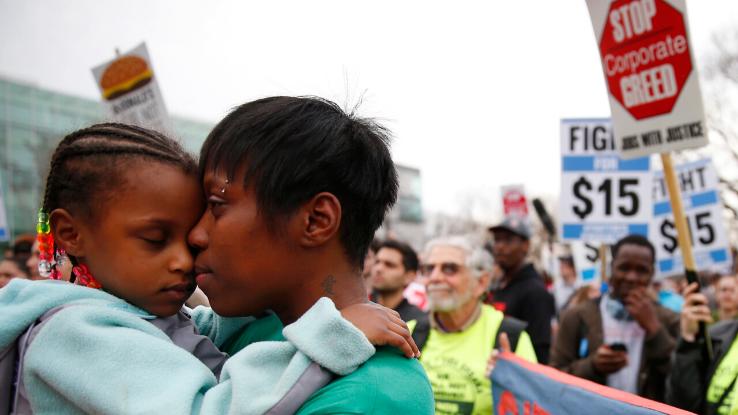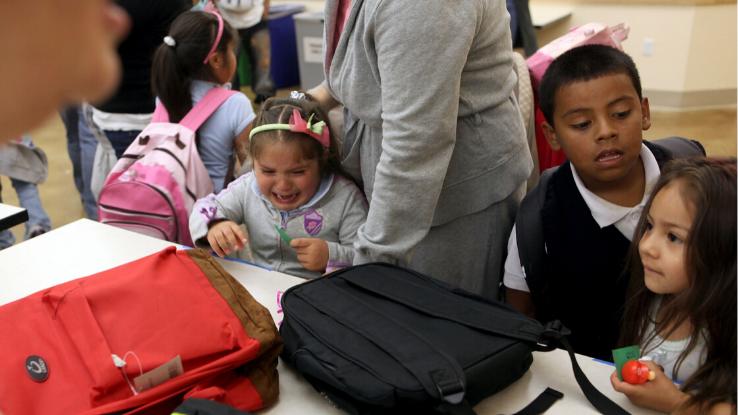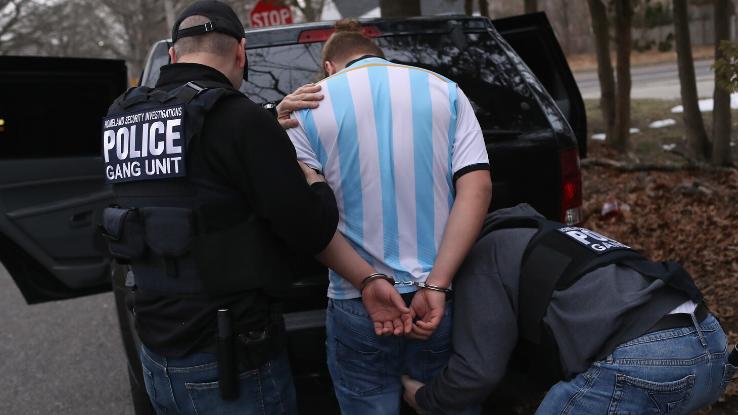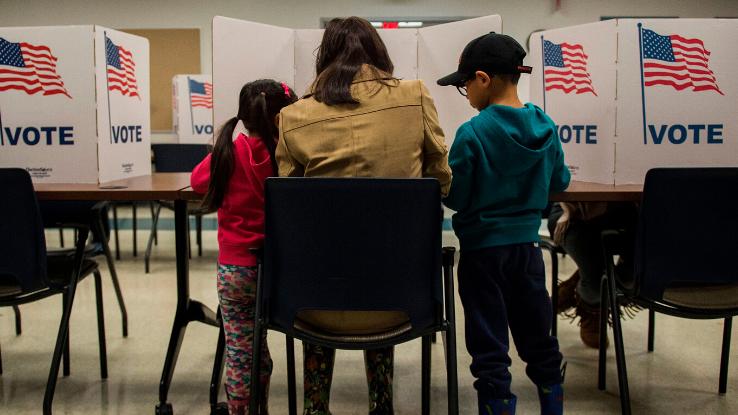Income Inequality Has Increased Continuously Since the 1960s

Since the 1970s, income inequality has been increasing in the United States. Many factors have caused the Income gap, including an economic recession in the mid-1970s, changing economic policies that favor free-trade and deregulation, the decline of domestic manufacturing plants, the decline of union membership and stagnated wages.
After World War II, stable wage increases were shared across the population. In fact, Americans in every economic class saw their wages almost double. However, after the recession of the 1970s, the nation endured a turning point in how wealth was distributed. Changes in geographical, industrial and demographical landscapes led to lower wages, reduced employment, and forced concessions
The top 20% of the wealthiest individuals in the U.S. have amassed 88.9% of all of the country's wealth. Even more lop-sided, the top 1% owns 35.4% of all the wealth in the U.S. Despite the alarming statistics and growing poverty, especially among young people, a Pew Research Center Poll found that 47% of Americans are unconcerned about the wage gap. The U.S. has not seen income inequality this great since the 1920s. Here are the effects of income inequality in several areas of life.
Public Health
As income inequality worsens, so does health equity. According to a study from the JAMA Network, respondents with high incomes reported being healthy while those with low incomes said their health was declining. The findings were unfortunate, but they weren't surprising.

Most workers who receive low wages don't have health care or sick leave. Without health insurance, people don't have access to preventative care, leading to more serious medical problems that require hospital or emergency room visits. When it comes to a lack of sick leave, service and retail workers who can't take sick days often go to work ill. Consequently, low-income earners have a lower life expectancy than high-income earners. In fact, rich Americans live 10 to 15 years longer than poor Americans.
Besides poor health, income inequality is also correlated with growing gaps in education, dramatically widening after the 1970s. Children from poor families receive less schooling and educational resources than children from wealthy families. In fact, high-income families spend two to three times more on educational growth for their children than low-income and middle-income families.

Due to income inequality, low-income children are less prepared to enter kindergarten and score worse on standardized tests. They are also more likely to drop out of high school and college to work or care for family members.
Crime Rates
There's a strong relationship between income inequality and crime rates, especially violent crimes in low-income communities. A study published in the National Center for Biotechnology Information found that the greater the income inequality, the higher the rate of murder. Another study revealed that "persons in poor households at or below the Federal Poverty Level had more than double the rate of violent victimization as persons in high-income households."

Disadvantaged neighborhoods have more violent cases because residents who live there lack resources and the capacity to provide those needed resources. As a result, people from these communities commit violent crimes to survive and take care of their families. These violent crimes also usually involve a firearm.
Politics
Income inequality affects politics, where mainly the wealthy control local and national governments. These wealthy and powerful people often work in favor of the rich, while low-income families are left behind. For instance, the 2017 GOP tax cut financially benefits rich Americans more than poor Americans.

As inequality grows, political interest declines among low-income families who get ignored. They're less likely to join political discussions and go vote while the wealthy sponsor political campaigns and have a higher voter turnout. As a result, income inequality creates political inequality.
Source: https://www.reference.com/world-view/income-inequality-increasing-18b4f01d7538fa3e?utm_content=params%3Ao%3D740005%26ad%3DdirN%26qo%3DserpIndex&ueid=071c47dd-54e5-4b52-8a09-a562b2cb5bfc